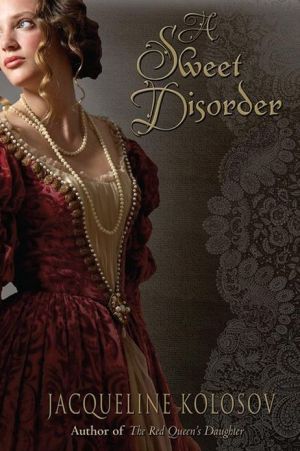

 |

|

The average rating for Sweet Disorder based on 2 reviews is 2.5 stars.
Review # 1 was written on 2015-02-05 00:00:00 John Aguurs Sr John Aguurs SrIt's alarming to me that this book was written by someone who teaches creative writing at a college level, because if a generation of writers emulated A Sweet Disorder, I'd be bored to death. I was already struggling to find anything positive to say about it before I read that on the book jacket, but once I discovered the author's credentials, I felt seriously indignant. I think there's an art to writing a book in which nothing incredibly drastic happens. It can be done, and there is a place for it. If an author's writing is truly gorgeous and unique, unrealistic or extreme events can distract from the strength of the prose or the magic of seeing our world through an unexpected lens. You don't really want EVERY dial to go up to 11, so plot can be quiet when style or character or language or humor or pathos is commanding attention. But nothing in this book goes up to 11. Or 8. Or 6. I'm occasionally in the mood for a book that is more soothing than exciting, provocative, or challenging; but this book didn't give me any of the quietly pleasant feelings I would expect from that sort of reading. I think the idea is to (semi)realistically depict a young woman during the reign of Elizabeth I who doesn't want to be married to a disgusting older man, who wishes she could marry for love, yet understands that she's more likely to escape a marriage she doesn't want by pleasing the queen with her skills as a seamstress than by pleading her case as a woman. I don't think that's a terrible idea for a novel, but Kolosov doesn't do anything particularly rewarding with it... and worse, she keeps doing the literary equivalent of playing suspense music that makes you think the killer is going to jump out of the shadows, but then fading the music out when nothing actually happens. For example, Miranda goes to live with a puritanical guardian who is creepy and possibly evil, and Kolosov makes you think that sooner or later Miranda is going to end up beaten or locked in an attic and starved or forced to wear a crown of thorns or something... but then she's only forced to spend time in prayer and quiet contemplation, eat bland food, and wake up early. At another point, Miranda realizes that another girl, Agnes, hates her and is "dangerous." There's a moment of tension when you fear what Agnes might do to ruin her (being aware of the dire consequences of ruination in that time period). But all Agnes does is steal a dress from Miranda -- and everything ends up working out fine because another girl lends her a dress two pages later. Another woman, Charlotte, also hates Miranda, and is in a position of power where you think she might seriously sabotage Miranda's entire future. Charlotte is able to issue Miranda a challenge on behalf of Queen Elizabeth that will decide her entire fate, and Charlotte demands that Miranda replicate a dress worn by Anne Boleyn. You assume that this is going to be disastrous -- that it will infuriate Elizabeth and she will punish Miranda in some dreadful way for her impudence. But no. It's just a difficult task for Miranda to complete in the timetable set forth, but she succeeds and it delights Elizabeth. Even more than I object to the blandness of the plot, I object to the fact that I'm repeatedly set up to anticipate drama, and then something bland happens. It feels very manipulative and there's no payoff. The climax of the book involves multiple characters impersonating the same man in an ill-conceived attempt to help Miranda, so you're supposed to be really touched and happy for Miranda that people care about her, but I was more bothered by the fact that the one time something really happened, it was something that strained credulity. Men of breeding who had participated in a jousting tournament for Elizabeth only weeks before are not going to pass for a gamekeeper's son in a conversation two feet away from her. Not only is she quite likely to recognize their faces, I don't think their language and accents and attire are likely to be authentic enough to fool anyone. I wouldn't recommend this book to any of my reader friends. Whether you really like historical fiction, Elizabethan times, historical romance, or even low-key feminism, this book purports to be for you, but I just don't feel like it delivers. |
Review # 2 was written on 2011-02-04 00:00:00 Greg Forrest Greg ForrestMiranda is a lady, a seamstress, and a dreamer, during the reign of Queen Elizabeth I. But a woman on the throne means nothing in the way of freedom for other women of the era'a lesson Miranda learns all too quickly when her father dies, leaving a legacy of debt. And thrusting Miranda out of her country home into the greater realm. Where she meets: The Countess who has obliterated all color and joy from her household. The servant-girl determined to escape. The ward who starves herself rather than accept marriage. And the ladies of the court. Each of them, in their own way, bound and restrained by the realities of money, the desires of others, and the bindings of society. A realm of restriction. Where the only cure is A Sweet Disorder. I enjoy Kolosov's smooth prose and fine details. As for the characters, Eliza, the servant girl who runs off to become a healer, is probably my favorite. I think I would enjoy a whole separate book about her. |
CAN'T FIND WHAT YOU'RE LOOKING FOR? CLICK HERE!!!